热身 Warm-up
1 给下面的词语选择对应的图片
Match the pictures with the words/phrases.
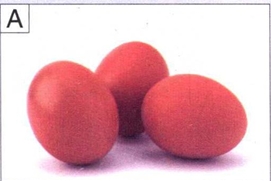
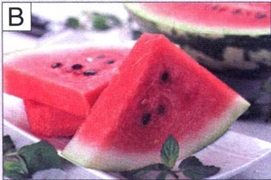

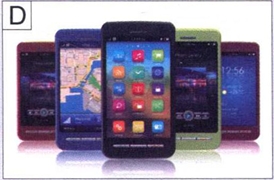
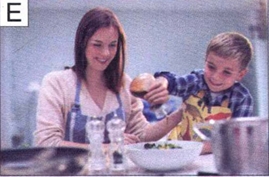
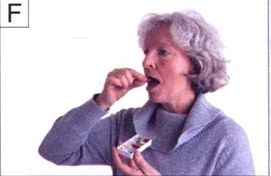
① xīguā 西瓜 ____
② jīdàn 鸡蛋 ____
③ xiūxi 休息 ____
④ chī yào 吃药 ____
⑤ shǒujī 手机 ____
⑥ zhǔnbèi wǔfàn 准备 午饭 ____
2 给下面的动词加上合适的宾语
Add an appropriate object after each of the following verbs.
例如:xué Hànyǔ 学 汉语
tīng 听 ____
tī 踢 ____
wánr (to play) 玩儿 ____
xiě 写 ____
xià 下 ____
kāi 开 ____
课文 Text 1 在家里 At home 10-1
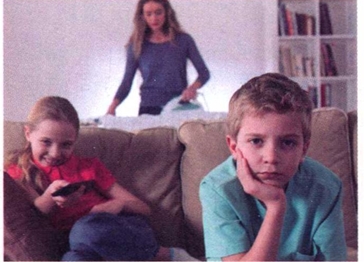
Búyào kàn diànshì le, míngtiān shàngwǔ
A: 不要看 电视了,明天 上午
hái yǒu Hànyǔ kè ne.
还 有 汉语课呢。
Kàn diànshì duì xué Hànyǔ yǒu bāngzhù.
B: 看 电视 对 学汉语 有 帮助。
Míngtiān de kè nǐ dōu zhǔnbèi hǎo le ma?
A: 明天 的课你都 准备 好了吗?
Dōu zhǔnbèi hǎo le.
B: 都 准备 好了。
English Version
A: Stop watching TV. You’ll have a Chinese class tomorrow morning.
B: Watching TV is good for Chinese learning.
A: Are you well prepared for the lessons tomorrow?
B: Yes, I am.
New Words
1. 课 kè n. class, lesson
2. 帮助 bāngzhù v. to help, to assist, to aid
2 在医院 In the hospital 10-2

Bié kàn bàozhǐ le, yīshēng shuō nǐ yào duō xiūxi.
A: 别 看 报纸了,医生 说 你要 多休息。
Hǎo, bù kàn le. Gěi wǒ yì bēi chá ba.
B: 好,不看了。给 我 一杯 茶吧。
Yīshēng shuō chī yào hòu liǎng gè xiǎoshí bùyào hē chá.
A: 医生 说 吃药 后 两个 小时 不要 喝茶。
Yīshēng hái shuō shénme le?
B: 医生 还 说 什么了?
Yīshēng ràng nǐ tīng wǒ de.
A: 医生 让 你 听 我的。
English Version
A: Stop reading the newspaper. The doctor said you need more rest.
B: OK. Give me a cup of tea.
A: The doctor said you shouldn’t drink tea during the first two hours after you’ve taken the medicine.
B: What else did the doctor say?
A: The doctor said you should listen to me.
New Word
3. 别 bié adv. don’t
Nǐ zěnme mǎile zhème duō dōngxi a?
A: 你怎么买了这么多 东西啊?
Gēge jīntiān zhōngwǔ huílai chī fàn.
B: 哥哥今天 中午 回来吃饭。
Wǒ kànkan mǎi shénme le. Yángròu, jīdàn,
A: 我 看看 买 什么了。羊肉、鸡蛋、
miàntiáo, xīguā…… zhēn bù shǎo! Māma ne?
A: 面条、 西瓜……真 不少! 妈妈呢?
Zhèngzài zhǔnbèi wǔfàn ne!
B: 正在 准备 午饭呢!
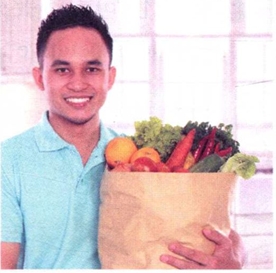
English Version
A: Why did you buy so many things?
B: Our elder brother will come back to have lunch.
A: Let me see. Mutton, eggs, noodles, watermelon…That’s a lot! Where is Mom?
B: She is preparing lunch!

Nǐ zài zhǎo shénme?
A: 你在 找 什么?
Nǐ kànjiàn wǒ de shǒujī le ma? Báisè de.
B: 你看见 我的手机了吗? 白色的。
Bié zhǎo le, shǒujī zài zhuōzi shang ne,
A: 别 找 了,手机在桌子 上 呢,
diànnǎo pángbiān.
A: 电脑 旁边。
Nǐ kànjiàn wǒ de yīfu le ma? Hóngsè de nà jiàn.
B: 你看见 我的衣服了吗? 红色的那件。
Nà jiàn yīfu wǒ bāng nǐ xǐ le, zài wàibian ne.
A: 那件衣服我 帮你洗了,在外边 呢。
English Version
A: What are you looking for?
B: Have you seen my cell phone? It’s white.
A: Stop looking for your cell phone. It’s on the desk, beside the computer.
B: Have you seen my garment? The red one.
A: I have washed it for you. It’s hung outside.
The Imperative Sentence “不要……了/别……了”
表示劝阻或禁止做某件事情。例如:
This sentence structure is used to dissuade or forbid somebody from doing something. For example:
| 不要 | V(+ O) | 了 |
|---|---|---|
| 不要 | 玩手机 | 了。 |
| 不要 | 做饭 | 了。 |
| 不要 | 看电视 | 了。 |
| 别 | V(+ O) | 了 |
|---|---|---|
| 别 | 睡觉 | 了。 |
| 别 | 看书 | 了。 |
| 别 | 看报纸 | 了。 |
介词“对”可以表示人和人、人和事物、事物和事物之间的对待关系。例如:
The preposition “对” can indicate a subject-target relation between people or things. For example:
| Subject | 对 | Predicate O |
V/Adj |
|---|---|---|---|
| 跑步 | 对 | 身体 | 很好。 |
| 老师 | 对 | 学生 | 非常好。 |
| 看电视 | 对 | 学汉语 | 有帮助。 |




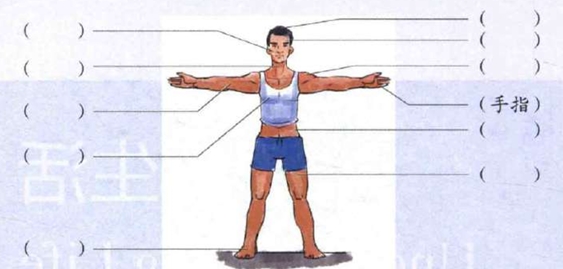

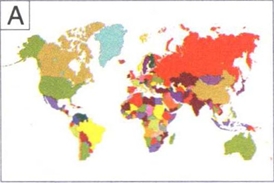


暂无评论内容